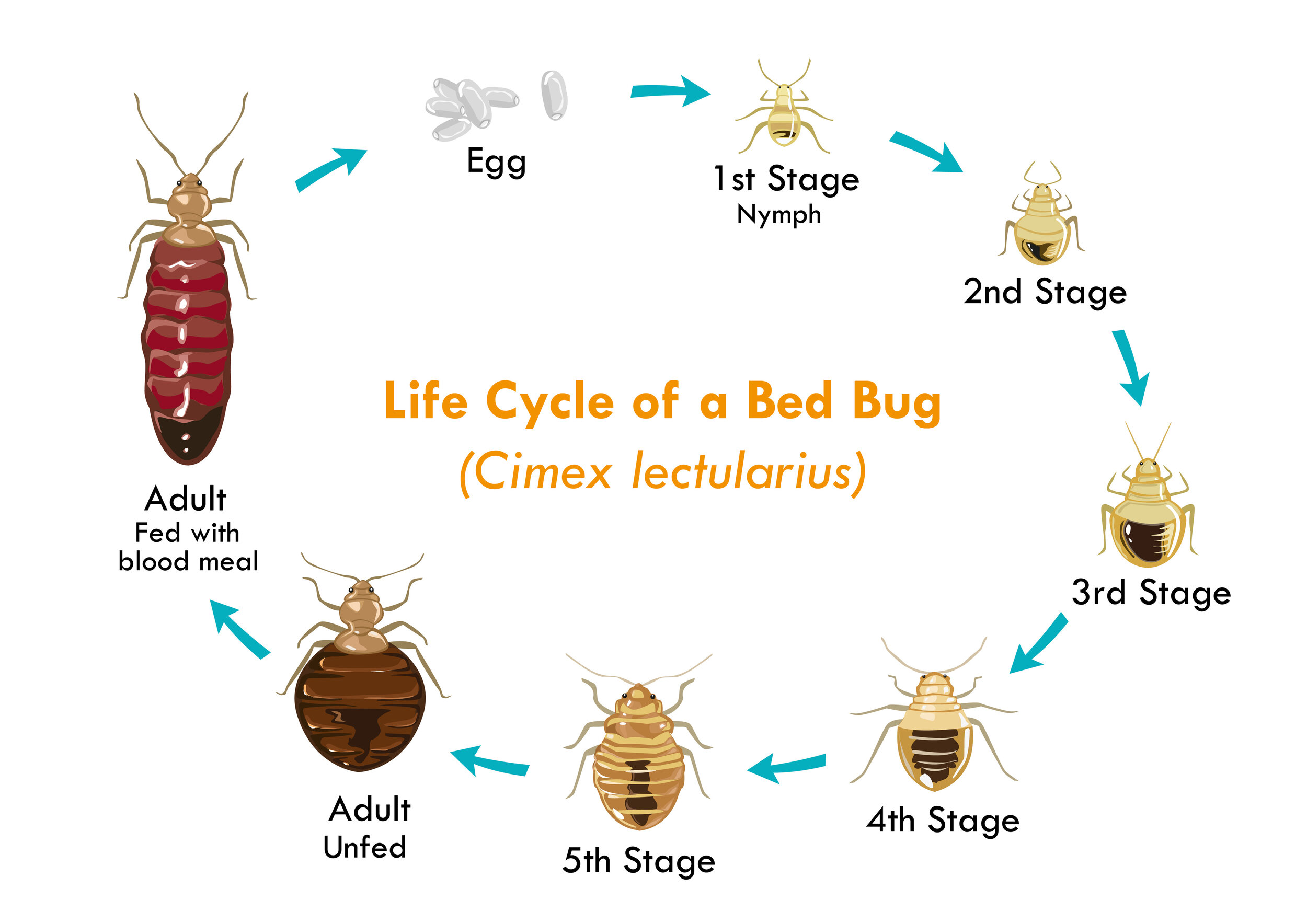Comprehensive A1 Bed Bug Extermination in Houston Area
Comprehensive A1 Bed Bug Extermination in Houston Area
Blog Article
Understanding the Lifecycle of Parasites for Targeted Control Approaches
Recognizing the lifecycle of bugs is an essential aspect of reliable bug monitoring approaches. By comprehending the various phases of advancement that pests undertake, a much more specific and targeted technique can be adopted to regulate their populations. This expertise not only clarifies the susceptabilities within the insect lifecycle yet likewise paves the method for executing critical steps that can interrupt their development and reproduction cycles. Via a deeper understanding of just how insects advance and prosper, tailored control methods can be designed to attend to particular factors in their lifecycle, ultimately causing more successful parasite management end results.
Value of Recognizing Pest Lifecycle
Recognizing the lifecycle of parasites is essential for developing effective and targeted control strategies in pest monitoring. By understanding the various phases a parasite goes via from egg to grownup, bug control experts can determine susceptible points in the lifecycle where treatment can be most effective.
Additionally, recognizing the details ecological problems needed for each stage of the parasite's lifecycle can assist decisions on habitat modification or exemption techniques to decrease and disrupt the lifecycle parasite populations. This knowledge makes it possible for pest monitoring experts to implement aggressive procedures instead of depending entirely on responsive therapies, resulting in even more lasting and sustainable parasite control options. Ultimately, a thorough understanding of bug lifecycles equips parasite control professionals to tailor their approaches efficiently, optimizing and reducing ecological effects control results.
Trick Stages in Parasite Development
To efficiently carry out targeted control strategies in bug monitoring, an important element exists in adequately recognizing and recognizing the key stages in pest development. Insect advancement typically consists of several key stages that are essential for their lifecycle and administration.

Susceptabilities in Bug Lifecycle
Throughout the numerous stages of a bug's lifecycle, distinct vulnerabilities emerge that can be purposefully targeted for effective control procedures (A1 Bed bug Exterminator houston). One essential vulnerability lies in the egg phase, where pests are commonly more prone to particular insecticides or biological control agents due to their soft external covering, making them easier targets for intervention. Comprehending these susceptabilities in the parasite lifecycle is essential for establishing reliable and precise control techniques that successfully handle parasite populaces while minimizing environmental impact.
Executing Targeted Control Procedures
.jpg)
Carrying out targeted control actions usually entails a multi-faceted approach. This may consist of habitat adjustment to make the atmosphere much less hospitable to parasites, such as getting rid of standing water for mosquito control or securing entrance factors for rodents. Furthermore, biological control methods can be used, where all-natural predators or microorganisms are presented to maintain insect populations in check.
Chemical control, such as the mindful application of chemicals, is an additional usual technique. It is vital to make use of these materials deliberately to minimize environmental effect and prospective damage to non-target varieties - A1 Bed bug Exterminator houston. Integrated Insect Administration (IPM) methods that integrate different control actions in a worked with and lasting fashion are usually one of the most reliable in attaining long-lasting bug management goals. By executing targeted control steps based on a comprehensive understanding of insect lifecycles, pest populations can be effectively regulated while decreasing threats to human health and wellness and the atmosphere.
Improved Pest Monitoring Practices

Moreover, the incorporation of organic control agents, such as natural killers or microorganisms of pests, can aid decrease dependence on chemical pesticides and promote an extra balanced ecological community. Carrying out physical obstacles and traps can additionally belong to boosted insect A1 Bed bug exterminator houston LLC monitoring practices, using non-toxic and targeted options for pest control. Furthermore, using scents and various other semiochemicals can interfere with pest mating patterns and interaction, leading to minimized pest populations with time.
Conclusion
Finally, understanding the lifecycle of insects is critical for effective bug management techniques. By recognizing vital stages in bug development and vulnerabilities in their lifecycle, targeted control actions can be implemented to reduce pest populations. Improved parasite management methods can assist lower the reliance on broad-spectrum pesticides and promote more environmentally friendly and sustainable pest control techniques. This understanding plays an essential role in maintaining healthy communities and farming efficiency.
Understanding the lifecycle of pests is important for developing effective and targeted control strategies in parasite monitoring. By understanding the different phases a parasite goes via from egg to grownup, insect control professionals can identify at risk factors in the lifecycle where treatment can be most successful. Ultimately, a thorough understanding of bug lifecycles equips insect control practitioners to customize their approaches successfully, making best use of and lessening environmental influences control results.
By executing targeted control measures based on an extensive understanding of insect lifecycles, insect populaces can be efficiently controlled while lessening dangers to human wellness and the setting.
By recognizing essential stages in pest development and susceptabilities in their lifecycle, targeted control steps can be carried out to minimize bug populations.
Report this page